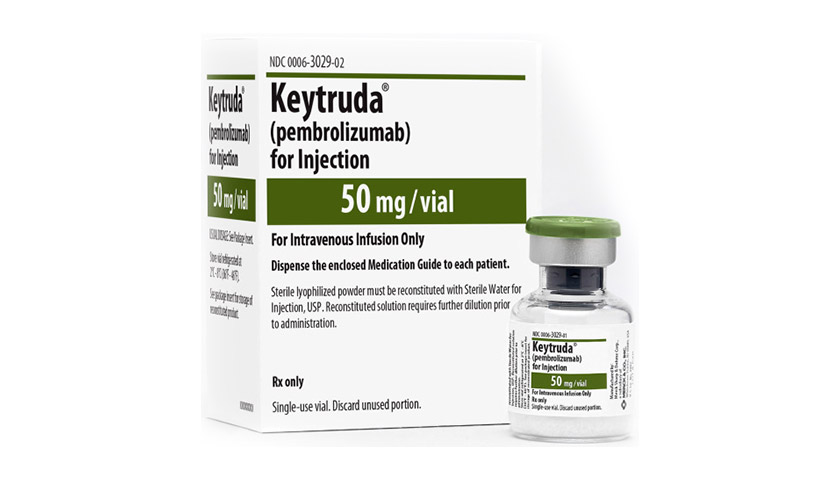Merck & Co's Keytruda outperforms chemo in MSI-High colorectal cancer

Merck & Co’s Keytruda (pembrolizumab) immunotherapy has outperformed standard of care in untreated colorectal cancer with certain mutations, offering patients a single-agent therapy option without the need for chemotherapy and its toxic side-effects.
The US-based company known as MSD outside the US and Canada announced results of the phase 3 KEYNOTE-177 trial at this year’s American Society of Clinical Oncology (ASCO) conference.
This trial assessed patients with untreated metastatic colorectal cancer with microsatellite instability-high (MSI-High) or mismatch repair deficient genetic mutations (dMMR).
They showed that Keytruda monotherapy significantly reduced risk of disease progression or death by 40% and showed a median progression-free survival of 16.5 months compared with 8.2 months for patients treated with investigators’ choice of chemotherapy, with or without Roche’s Avastin (bevacizumab) or German Merck KGaA’s Erbitux (cetuximab).
Investigators could choose between either mFOLFOX6 or FOLFIRI chemotherapy.
The study will continue without changes to test overall survival, the other dual primary endpoint.
Results also showed a two-year progression-free survival rate of 48% with Keytruda compared with 19% with chemotherapy.
There was also an improved overall response rate with Keytruda of 43.8% compared with 33.1% with chemotherapy, and a complete response was observed in 11.1% and 3.9% of patients, respectively.
Partial responses were seen in 32.7% of patients in the Keytruda arm, and 29.2% of those in the chemotherapy arm.
The safety profile of Keytruda was par for the course for an immunotherapy, without the toxicity issues seen with chemotherapy but more immune reactions.
It demonstrated a lower incidence of Grade 3 or more treatment-related adverse events (AEs) versus chemotherapy (22% versus 66%, respectively), and no new toxicities were observed.
Immune-mediated AEs and infusion reactions occurred in 31% of patients receiving the immunotherapy and 13% of patients receiving chemotherapy. The most commonly reported immune-mediated AEs were hypothyroidism (12%) and colitis (7%) with Keytruda, and infusion reactions (8%) with chemotherapy.
Results have been selected for presentation on Sunday at a plenary session of the meeting, which is being held virtually because of the COVID-19 pandemic.
Microsatellite instability (MSI) is a change that occurs in the DNA of certain cells, including tumour cells, where the number of repeats of microsatellites – short repeated sequences of DNA – is different from the number of repeats in the DNA when it was inherited.
The cause of MSI may be a defect in the ability to repair mistakes when DNA is copied in the cell – referred to as a mismatch repair deficiency.
It is estimated that around 5-15% of colorectal cancer patients have tumours that score as either MSI-High or dMMR when testing is performed.
Keytruda was approved in 2017 in previously treated MSI-High or dMMR solid tumours, the first time a cancer therapy was licensed by the FDA for use on a biomarker, regardless of tumour type.












